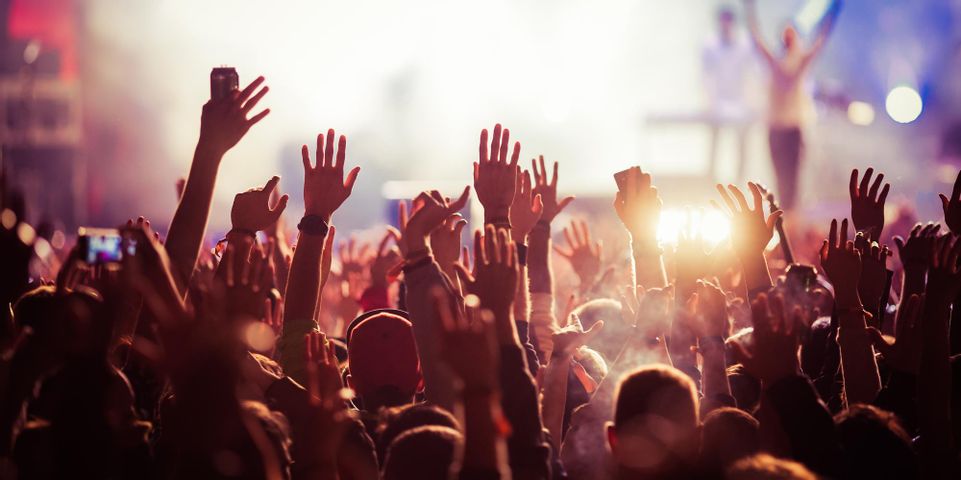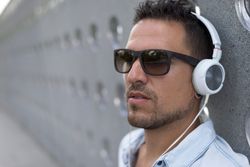
Rocking out to loud music is something people do every day. However, when enjoying a concert, blasting music in your car, or pumping sounds into your headphones, you may be causing irreparable damage to your hearing. If you understand how music affects hearing loss, you can take steps to protect yourself going forward. Here’s what you should know.
Loud Music & Hearing Loss
The Consequences of Loud Music
Loud music may damage the nerves, membranes, hair cells, and other parts of your ear temporarily or permanently. Most people have 16,000 hair cells at birth. These cells are responsible for safely sensing and capturing sound for processing in the inner ear, but loud music severely damages them. After 30% to 50% are destroyed, you’ll likely experience permanent hearing loss.
 You may first notice the effects of hearing loss in the days after attending a concert or sporting event. You may have trouble deciphering whispers and low sounds or processing language. If your auditory nerve is damaged, your ears may be unable to direct sound signals to the brain, disrupting your hearing.
You may first notice the effects of hearing loss in the days after attending a concert or sporting event. You may have trouble deciphering whispers and low sounds or processing language. If your auditory nerve is damaged, your ears may be unable to direct sound signals to the brain, disrupting your hearing.
How to Listen Safely
Decibels (dB) measure the loudness of a sound. Typically, hearing loss occurs at 85 dB and higher. The average concert registers between 110 and 120 dB. Most headphones have a max volume of 105 dB. When attending a concert, stand away from speakers and wear quality earplugs to protect your ears. It’s smart to take breaks as well by moving away from the stage into a lobby.
When using earbuds, never increase the volume bar on your phone or MP3 player past the 50% mark. If you have trouble hearing over outside noise, invest in over-the-ear noise-canceling headphones. Also, give your ears a break by resting them at 15-minute intervals.
If you have concerns about hearing loss, contact Russellville Hearing Clinic. This practice is backed by 20 years of experience and is proud to serve residents of Pope County, AR. They offer a variety of solutions to combat hearing loss, including hearing aids, and will also fulfill your needs for hearing testing and protection. Call (479) 968-7250 to schedule an exam, or visit their website to learn more about their services.
About the Business
Have a question? Ask the experts!
Send your question

